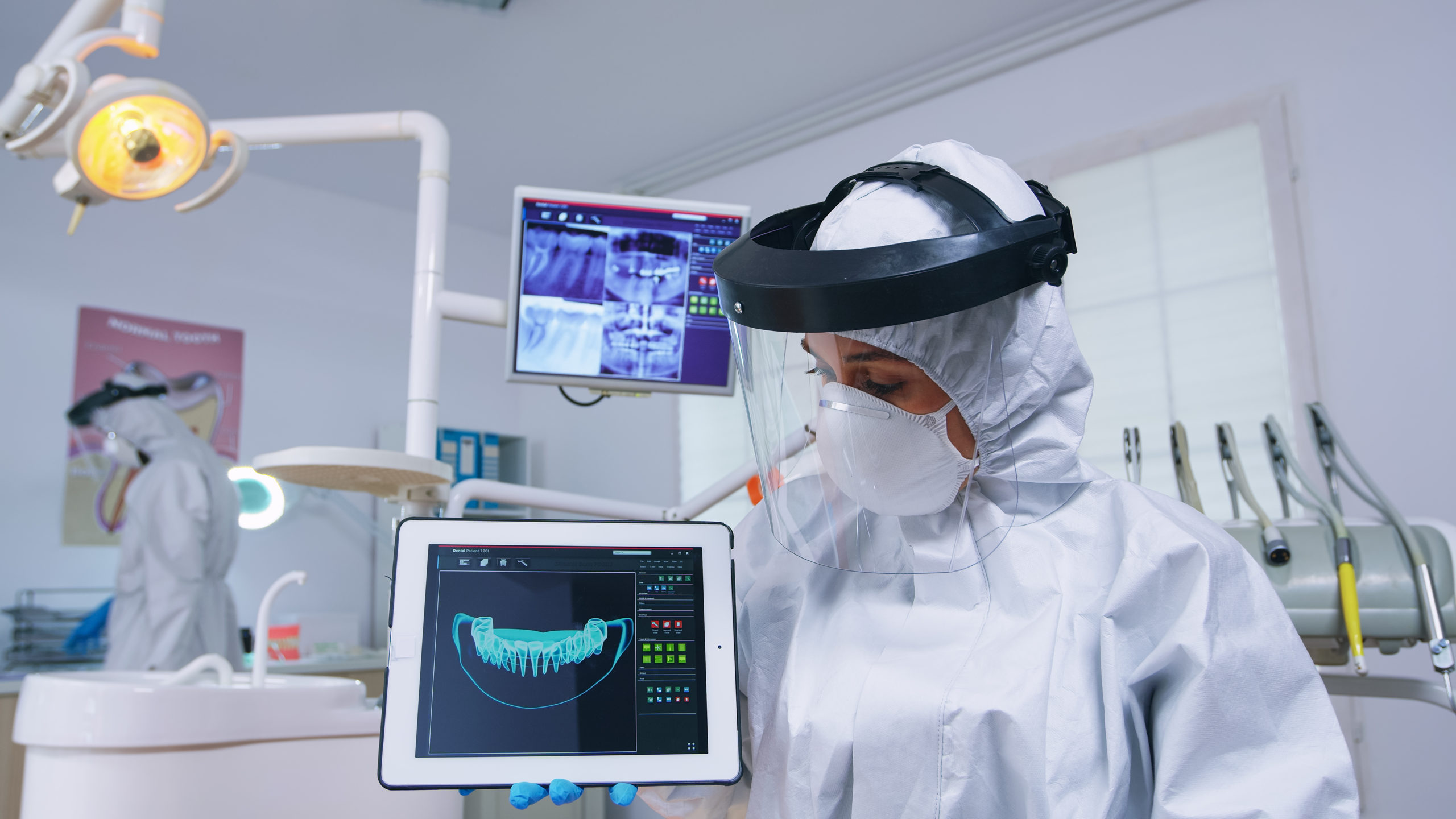Dentistry is undergoing a major digital transformation, with artificial intelligence (AI) at the forefront of this evolution. From diagnostics to treatment planning and patient communication, AI is rapidly changing how dental professionals work, think, and deliver care. For practices looking to stay competitive and efficient, integrating AI into the clinical workflow is no longer optional—it’s essential.
AI enables dentists to enhance diagnostic accuracy, automate time-consuming tasks, improve patient trust, and streamline collaboration with specialists and labs. As digital dentistry continues to expand, adopting AI solutions provides both clinical and operational advantages that improve outcomes and support long-term practice growth.
Why Digital Transformation Matters in Dentistry
Over the past decade, dentistry has transitioned from traditional tools and analog techniques to fully digital ecosystems. Practices now rely on intraoral scanners, digital X-rays, CBCT imaging, and cloud-based practice management systems to serve patients with greater precision and efficiency.
However, the true potential of digital dentistry is unlocked when AI is layered into this ecosystem. Artificial intelligence connects data points, interprets diagnostic images, and presents actionable insights that enhance clinical decision-making. With AI, dentists can reduce the risk of human error, identify hidden pathologies, and communicate more clearly with patients—all while saving time.
How AI Fits into the Modern Dental Workflow
AI can be integrated into multiple stages of the dental workflow—from the initial consultation to post-treatment follow-up. Here’s how forward-thinking practices are using AI tools like Diagnocat in their everyday operations:
1. Diagnostic Imaging Analysis
When a patient undergoes a panoramic X-ray or CBCT scan, AI can instantly analyze the image and detect over 60 types of dental conditions, including periapical lesions, caries, bone loss, impacted teeth, and root fractures. This immediate feedback helps clinicians diagnose more accurately and efficiently.
2. Automatic Radiology Reports
AI platforms generate detailed, professional-grade radiological reports within minutes. These reports include annotated images, 3D segmentations, and clearly identified pathologies—eliminating the need for manual image interpretation and documentation.
3. Implant Planning and Surgical Guide Preparation
For implant procedures, AI supports pre-surgical planning by identifying anatomical risks and proposing optimal implant positions. These plans can be exported directly to CAD/CAM systems or labs, making the workflow faster and more precise.
4. Patient Communication and Case Acceptance
AI-generated visual reports improve patient understanding by showing clear visuals of the diagnosis. When patients can see and understand their condition, they’re more likely to accept proposed treatment plans—resulting in higher case acceptance and patient satisfaction.
5. Collaborative Care and Specialist Integration
AI platforms like Diagnocat enable easy sharing of data with specialists, dental labs, and other providers. This ensures that every stakeholder is aligned with the diagnosis and treatment plan, reducing miscommunication and delays.
The Benefits of Integrating AI in Dental Practices
The advantages of AI integration go beyond convenience—they directly impact clinical quality, patient experience, and practice profitability. Benefits include:
- Increased diagnostic accuracy and consistency
- Faster treatment planning and decision-making
- Reduced chair time and operational bottlenecks
- Improved patient education and communication
- Higher case acceptance rates
- Better collaboration with labs and referral partners
With AI handling data analysis and interpretation, clinicians can focus more on delivering personalized care and building stronger patient relationships.
Diagnocat: Leading the Way in AI-Powered Dentistry
Diagnocat is a cutting-edge AI platform designed specifically for dental professionals. It offers cloud-based image analysis, automatic report generation, implant planning tools, and seamless integration with existing imaging systems and workflows.
Diagnocat is CE-certified, GDPR-compliant, and supports multilingual functionality—making it ideal for clinics across Europe and globally. Whether you’re a solo practitioner or part of a large dental group, Diagnocat helps you transition smoothly into the future of digital dentistry.
Getting Started with AI in Your Dental Practice
Integrating AI into your practice is easier than you might think. Most platforms are cloud-based, require minimal hardware investment, and are compatible with your existing imaging equipment. Start by identifying areas where automation can reduce workload—such as diagnostics or reporting—then adopt an AI solution like Diagnocat to fill that gap.
Training your team, setting clear workflows, and using visual AI tools with patients will ensure a smooth and successful implementation.
Conclusion: The Future of Dentistry Is AI-Driven
Digital transformation in dentistry isn’t just about going paperless—it’s about reimagining how care is delivered. With AI, practices gain the ability to diagnose with confidence, work more efficiently, and provide patients with the clarity and trust they need to move forward with treatment.
AI is not replacing the dentist—it’s empowering them to reach new levels of precision, productivity, and professionalism. To learn how your practice can benefit from integrating AI, visit https://diagnocat.com and take the first step toward smarter, more efficient dentistry.





Be First to Comment